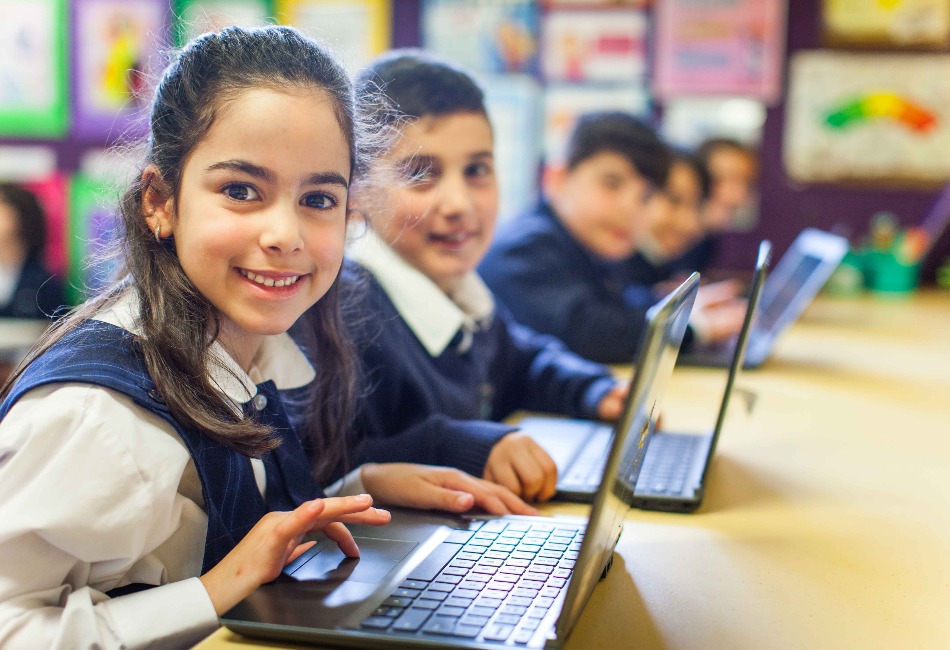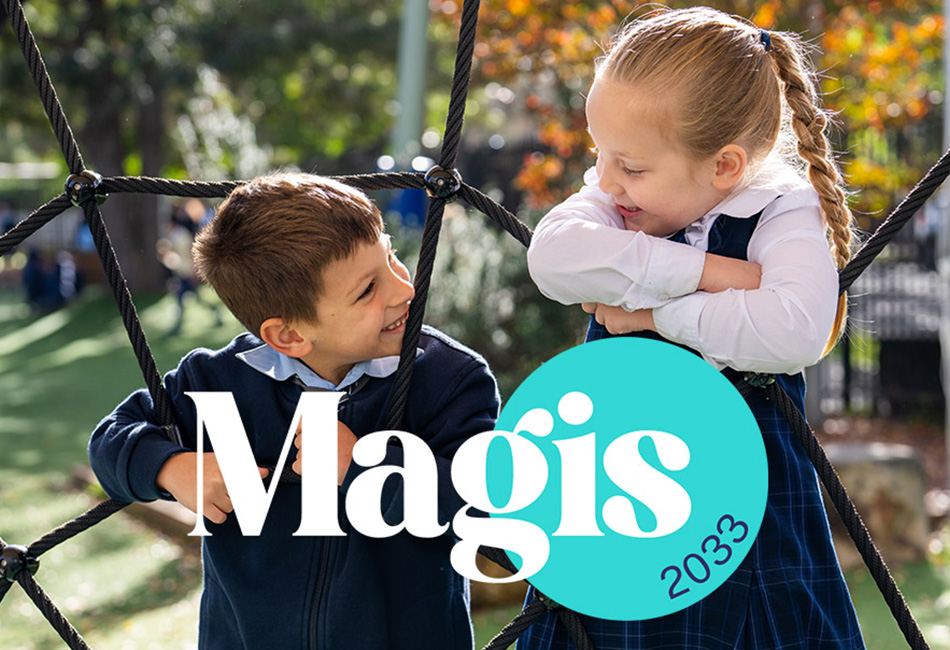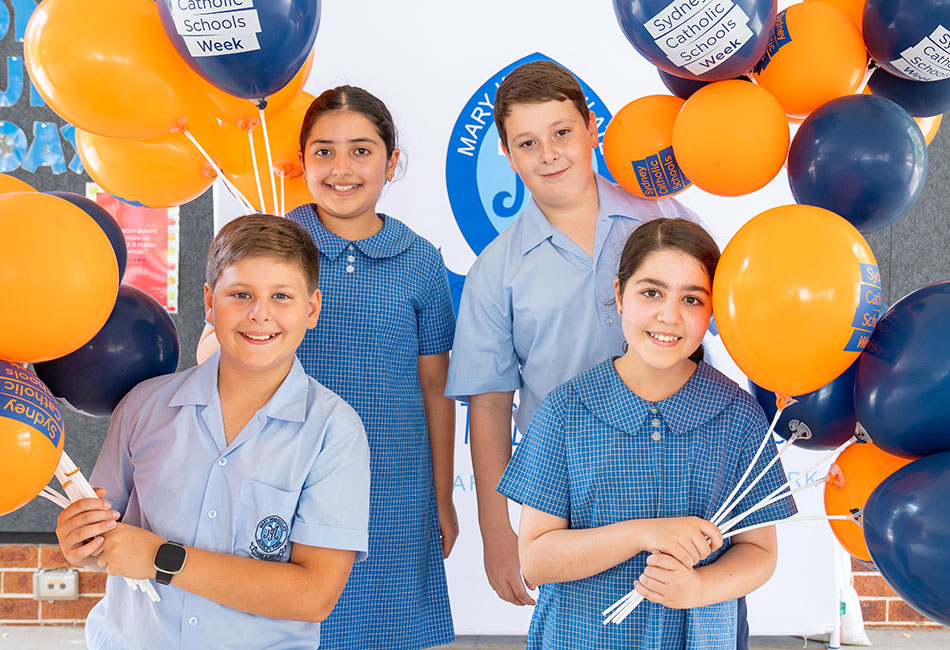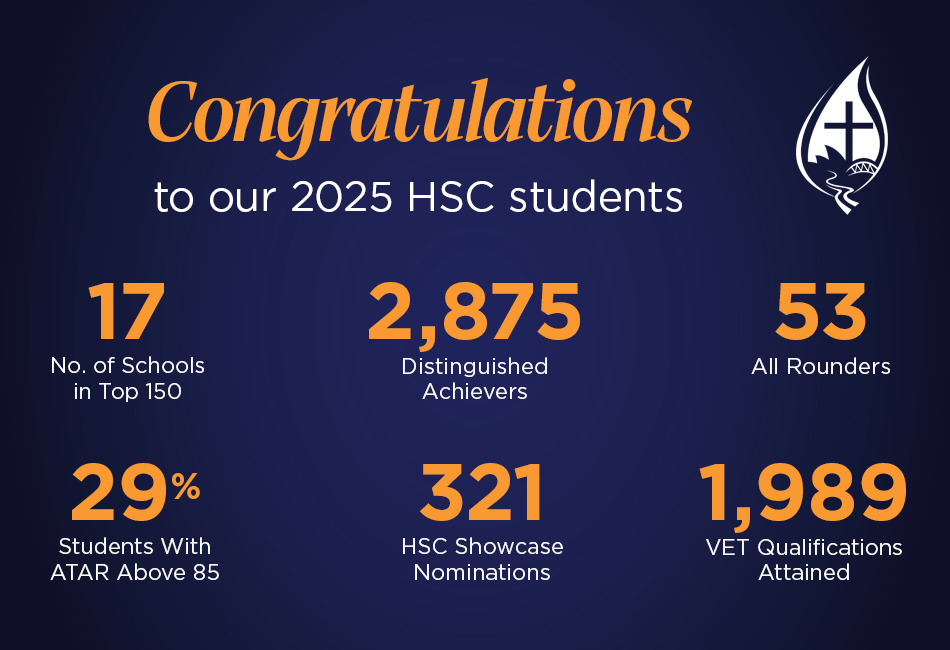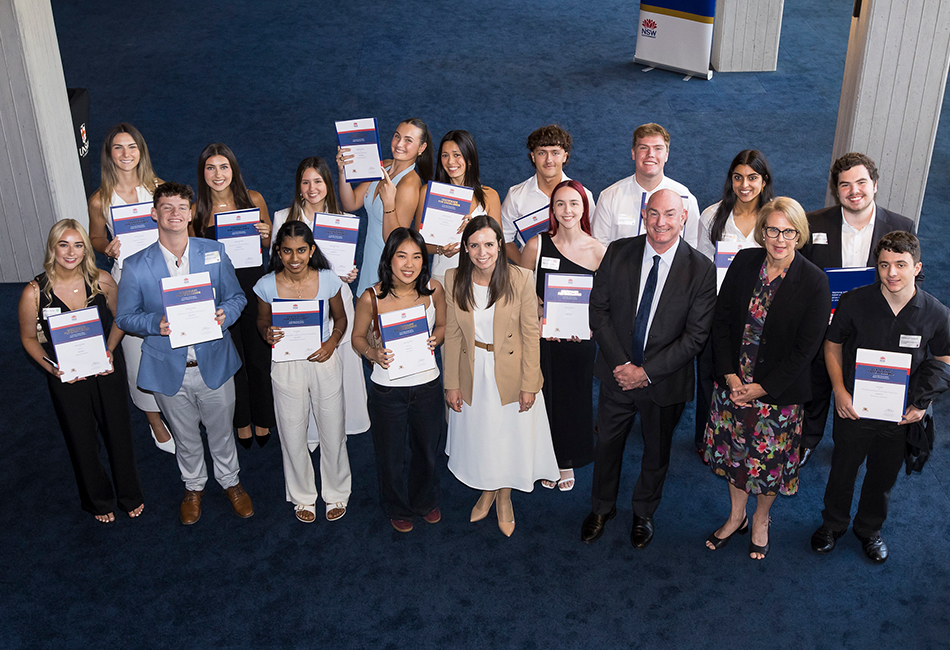No matter if your child is academically gifted or a talented athlete, there are things all parents should look for when choosing a school.
The conversations are happening in backyard barbecues, in local parks, and late at night between tired parents who want to do the right thing for their children.
What kind of school will give kids the best opportunity to thrive?
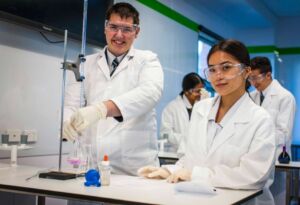 The question has been well researched globally and the answer is resounding: a well rounded education, with a variety of opportunities in different fields will foster the kinds of skills children will need to succeed.
The question has been well researched globally and the answer is resounding: a well rounded education, with a variety of opportunities in different fields will foster the kinds of skills children will need to succeed.
For example, while there has been a huge focus on STEM education to improve our maths, science and technology skills – recent research found that including arts subjects helps future scientists and mathematicians think more creatively.*
Additionally, the World Economic Forum reported in 2020 that fostering a rich education environment, including everything from creativity to technology and teaching children collaborative problem solving skills, will provide the strengths children will need in our future economy.
“The early years of a child’s education are sharply focussed on providing them with strong foundations in literacy and numeracy which are the building blocks.” – Tony Farley, Executive Director of Sydney Catholic Schools
Improving outcomes
This broad-based educational offering not only gives children the chance to thrive in subjects they may never have tried; it has been shown to improve outcomes in core areas such as literacy and numeracy.
And, according to executive director of Sydney Catholic Schools Tony Farley, this gets to the heart of why children should have access to a well-rounded education from an early age.
“The early years of a child’s education are sharply focussed on providing them with strong foundations in literacy and numeracy which are the building blocks of all that is experienced in both school and in life,” said Mr Farley.
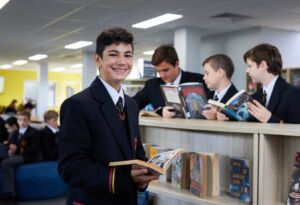 He said that focus extends through each school stage, with positive results.
He said that focus extends through each school stage, with positive results.
“Our schools have high expectations when it comes to NAPLAN and the HSC. Each year our schools feature in the high achiever media reports because our students and staff work hard to make that happen, knowing they reflect excellent outcomes for students.
“What you won’t see reported is the extraordinary academic growth our students achieve through improving their performance over time and in particular those students who have experienced learning challenges from the beginning. We really mean it when we say no child will be left behind,” Mr Farley said.
Music to our ears
While there will always be a focus on literacy and numeracy, Mr Farley explained it was important for all children to have a well-rounded education.
He said music, drama and visual arts “are expressions of who we are … and give life greater meaning and vibrancy.
“Integrating these into the daily experience of students allows them to broaden their minds and positively connect to their creativity and emotions,” he said.
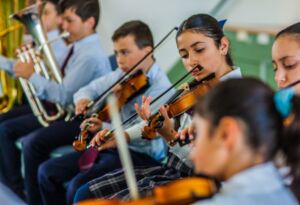 Mr Farley explained that including a variety of visual and performing arts in each school isn’t just a nice thing to have. Giving these options to students has been shown to improve their whole academic performance.
Mr Farley explained that including a variety of visual and performing arts in each school isn’t just a nice thing to have. Giving these options to students has been shown to improve their whole academic performance.
He said that by the end of 2024, all Year 3 to Year 8 students enrolled in Sydney Catholic Schools will learn an orchestral instrument.
“The research is clear – learning an instrument improves learning outcomes across the board, which is wonderful for all 33,000 students who participate in the program,” Mr Farley said.
“Each child’s response to education is just as varied. Every child has their own way of engaging with areas that they perceive as easy or difficult.” – Tony Farley
An education as unique as each child
But while not every child will come out of school a budding Mozart, Mr Farley said the aim of a well-rounded education is to give all students the opportunity to thrive in their own unique way.
“Ask any parent with more than one child about different siblings and you’ll be amazed at how different they think their own children are from each other,” Mr Farley said.
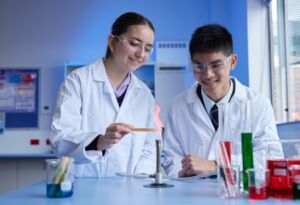 “Each child’s response to education is just as varied. Every child has their own way of engaging with areas that they perceive as easy or difficult.”
“Each child’s response to education is just as varied. Every child has their own way of engaging with areas that they perceive as easy or difficult.”
Because of this, he explained that the foundations of a good education are to support each child individually.
“The 13 years of school are a time of growth and development that allows young people to prepare for the success and failure and the joy and sadness that is inevitably experienced by every human being,” Mr Farley said.
He explained Sydney Catholic Schools offer a broad range of activities catering to the strengths of different students, including a comprehensive inter-school sport program, as well as options for gifted students and those with learning diversity.
“Great schools must methodically build each student’s capabilities and start with the foundations.” – Tony Farley
Lifelong skills
Mr Farley explained that to improve outcomes for all children, schools need to focus on building the skills they can use throughout life.
“We know that in life not everything will go our way and a good education needs to help build a child’s resilience in the face of challenge and disappointment.
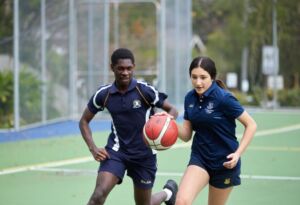 “Hard work and perseverance are the drivers of success in life and school needs to be a place where these dispositions are learnt and rewarded,” he said.
“Hard work and perseverance are the drivers of success in life and school needs to be a place where these dispositions are learnt and rewarded,” he said.
He added that schools can build these skills from an early age.
“Great schools must methodically build each student’s capabilities and start with the foundations.”
He said this included non-negotiable expectations in terms of student behaviour, with the result being a school environment that is respectful and considerate.
“Hard work and perseverance are the drivers of success in life and school needs to be a place where these dispositions are learnt and rewarded.” – Tony Farley
Additionally, he said that for students to thrive, they need skills to navigate our complex society.
“We’re clearly a Catholic school system that unambiguously follows the teachings of the Church. We believe that faith and reason are compatible and that our schools are thriving and growing because we are successfully building a bridge between our Catholic tradition and modern society that parents and the community value.”
* Source: ASM Journals, Journal of Microbiology & Biology Education
An emphasis on excellence in all areas of education – from academic to vocational, sport and the arts – helps Sydney Catholic Schools nurture the potential of all students in their 147-strong network of primary and secondary schools.
Click here to find your nearest Catholic school.

